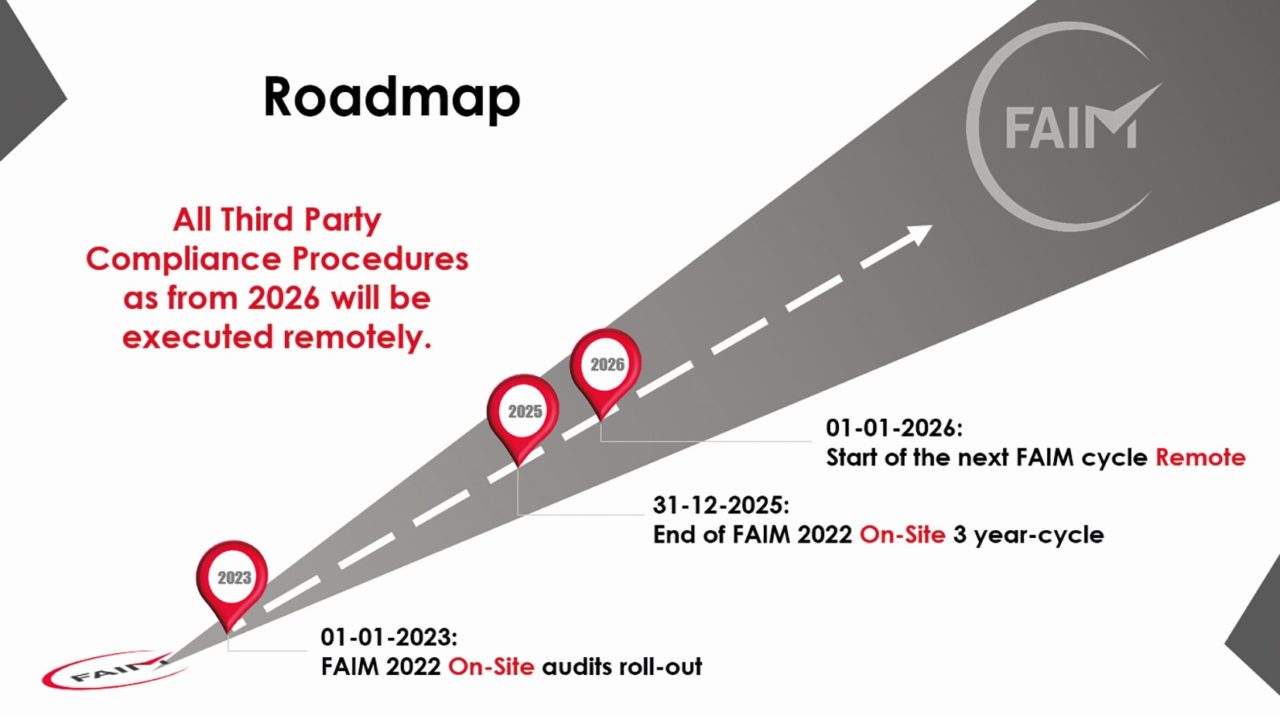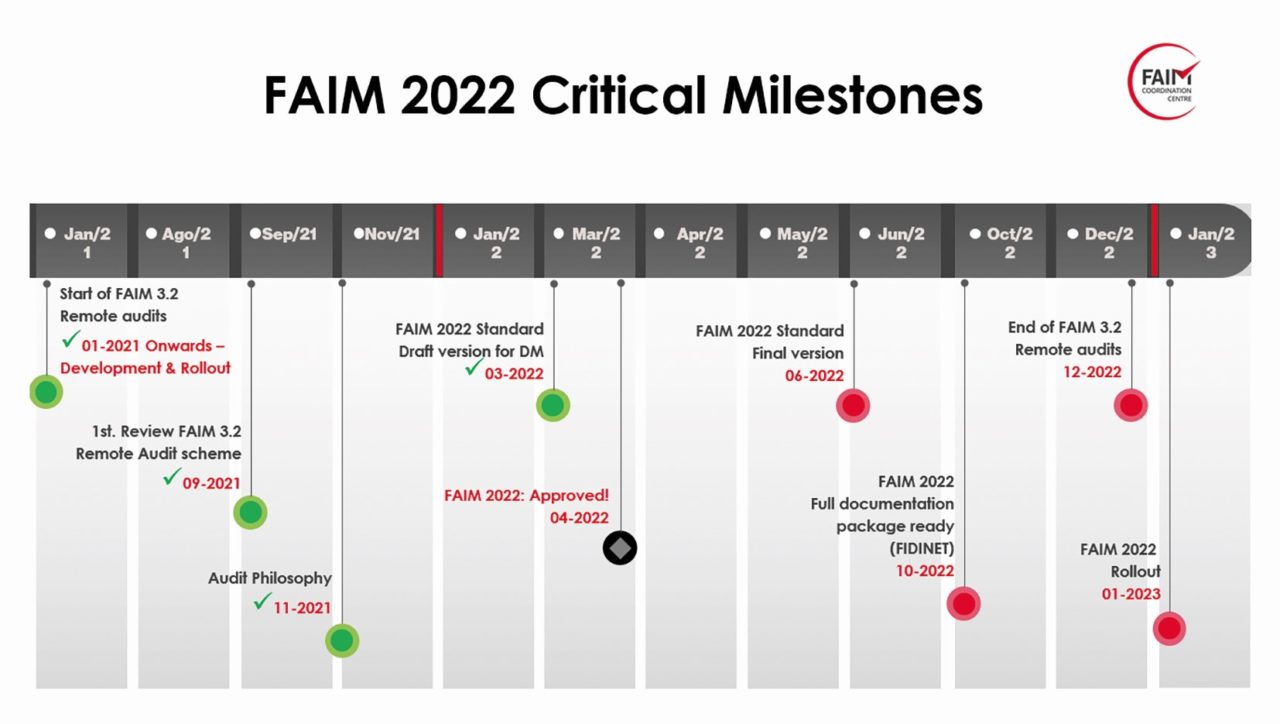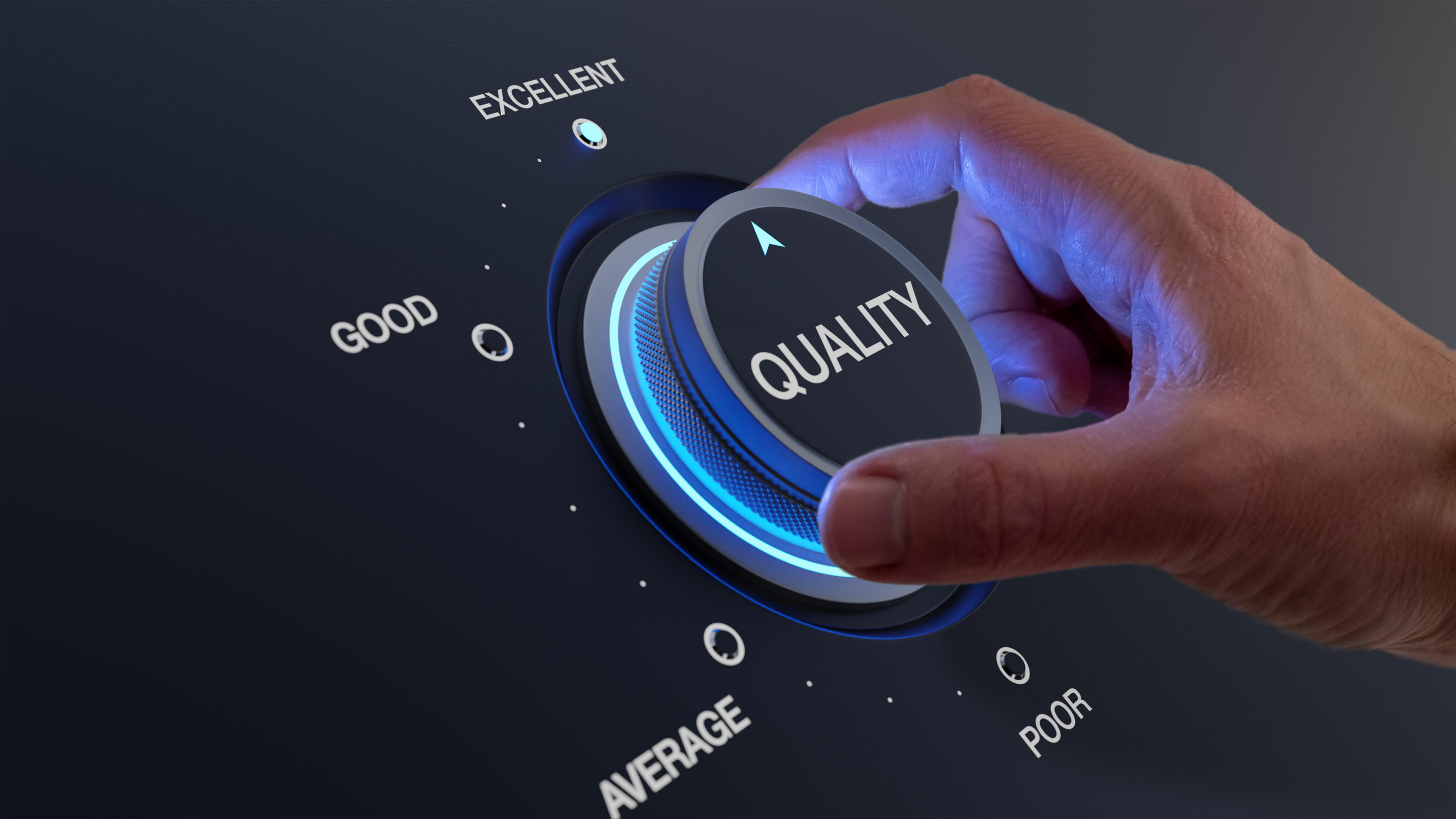During the April 2022 FIDI Conference in Cannes, the General Assembly approved the new FAIM 2022 Quality Standard, effective as of January 2023. John Prooij, FIDI Risk and Quality Manager, explains what the new standard will bring to FIDI Affiliates and the whole relocation industry
The FAIM Quality Standard is the leading quality standard in the international moving and relocation industry. It gives anybody interacting with a FAIM-certified mover the peace of mind that you should expect from such a seal.
This, however, comes with great responsibility. FIDI must consistently safeguard the level of quality its members deliver and continually review the strategic direction of its quality programme.
Lessons learned from the pandemic
During the global travel restrictions of the pandemic, the FCC developed the remote audit scheme, shifting all remaining FAIM 3.2 audits to remote auditing. Within this framework, the FCC and our independent auditor, EY, measured and assessed the ‘digital readiness’ of FIDI Affiliates; identifying the percentage of Affiliates who were able to demonstrate compliance with the FAIM Quality Standard remotely, without compromising the required quality when compared with the usual on-site audit.
A full review of the remote compliance procedure was conducted during October and November 2021. The main challenges we identified were the assessment of move files (digital against hard copies), warehouse (digital access) and generally in the assessment of FAIM performance requirements that couldn’t be demonstrated in a digital way.
The most fundamental finding of the review was that around 40-45 per cent of Affiliates assessed, cannot be classified as ‘paperless’ offices; at best, they are hybrid offices and/or were not fully equipped to undergo a trustworthy remote audit, safeguarding the high level of quality needed.

Challenges create opportunities
However, these observations were an opportunity for FIDI and its membership – and FAIM 2022 therefore contains a prerequisite related to the digital readiness of an Affiliate. This is to ensure that future FAIM models could indeed be subject to a remote audit for all members, without compromising the credibility of the FAIM Quality Standard.
The idea is to position the FAIM 2022 Quality Standard as a vehicle to lift the whole FIDI membership to digital proficiency.
It is essential to note that the aim is not only related to audit purposes; but also, more importantly, to strategically place FIDI Affiliates in pole position, as the obvious and demonstrably efficient ‘fully digital’ quality partner for corporate clients, their supply chain and end customers. In other words, raising the whole FIDI membership seamlessly to digital compliance.
Implementing this will also result in a positive future impact on the main new pillars of FAIM 2022, as described below.
The current three-year, third-party audit cycle is directly related to the FAIM certificate expiry date. Any implementation of an updated version will remain as it is, with the understanding that future FAIM upgrades after FAIM 2022 will be subject to periodic remote assessment only.
The plan, therefore, is to audit the FAIM 2022 Quality Standard fully and physically on site. During this on-site visit, Affiliates need to demonstrate to the independent auditor that they have a feasible strategy in place ensuring that the Affiliate will be not only ‘digitally ready’ to undergo future FAIM Quality Standards remotely, but furthermore to comply with FIDI’s strategic direction as set out during the FIDI Board meeting in September 2021.

New pillars of FAIM 2022
Besides the above main objective of demonstrating digital proficiency, and in addition to the regular mandatory foundation and international moving service criteria, the following three main pillars define the new FAIM 2022 Quality Standard:
1. Cyber Security
Cyber security has been identified as the greatest threat facing the world economy over the next 10 years. Among the many worries faced by global leaders, cyber security threats were placed above all other major concerns. It is no surprise that cyber security management makes its way into the FAIM 2022 Standard.
2. Risk Management
Risk management is often perceived as the mother of all quality concepts, and the pandemic really highlighted its importance. FAIM applicants must demonstrate awareness and detail their risk management procedures and actions, which ensure safety, security and least possible disruption to services and operations. It is therefore considered a key pillar of the FAIM 2022 Standard.
3. Corporate Sustainability
Corporate sustainability can be described as a business strategy for long-term growth that works in harmony with people and the planet. FAIM applicants that embrace this new era of corporate sustainability requirements are securing their place in the future economy – and will avoid being left behind. With the increased attention and emphasis given to corporate sustainability
in the relocation industry, it has been incorporated into the FAIM 2022 Standard.
FAIM 2022: why the new name?
The new FAIM Standard also comes with a new name format: FAIM 2022.
FAIM versions 3.0, 3.1 and 3.2 merely indicated the most recent version number of the FAIM Quality Standard. This naming convention was born out of tradition following the very first ‘FAIM 1.0’ version.
It took time to adapt to another system of indicating the most recent version. But we believe it is necessary: a version FAIM 3.2 might mean something to an Affiliate, but it says nothing to a customer.
FAIM 2022 refers to the year of the Standard’s revision and approval. This immediately gives a customer a clue about haow old and relevant a quality standard is. The concept is quite common among mature quality models, such as the ISO standards. For example, the latest revision of the ISO 90012:2015 standard was in 2015, making it now seven years old.
We believe that this new naming convention will help strengthen the FAIM brand.

